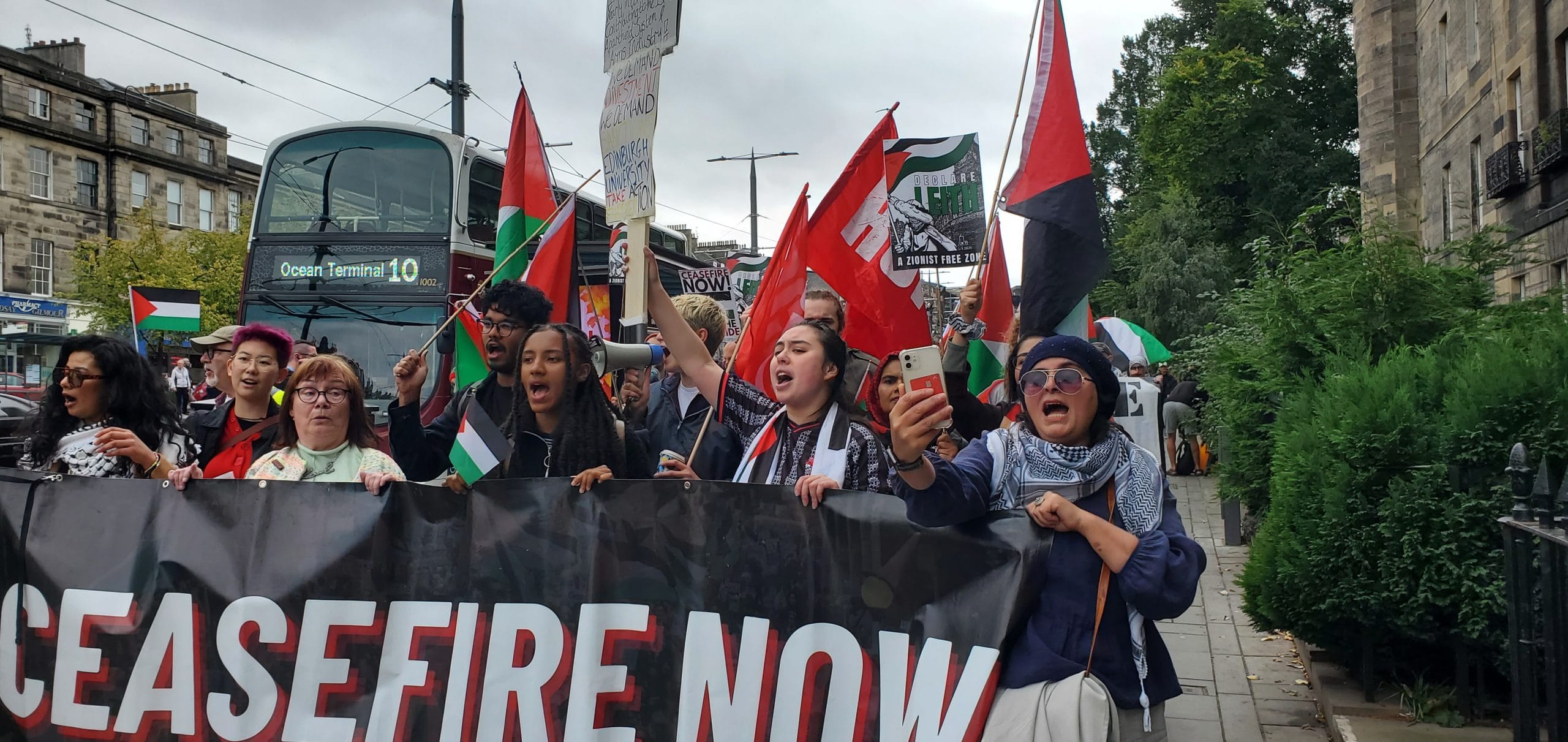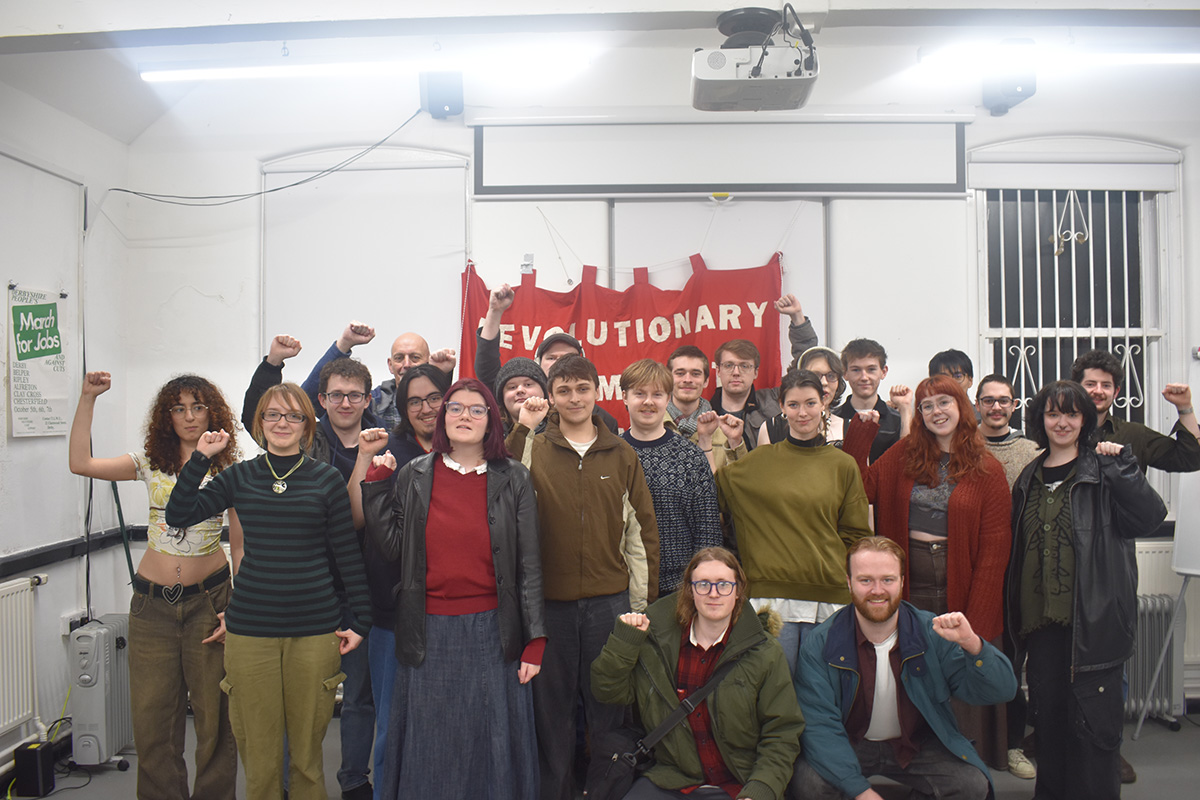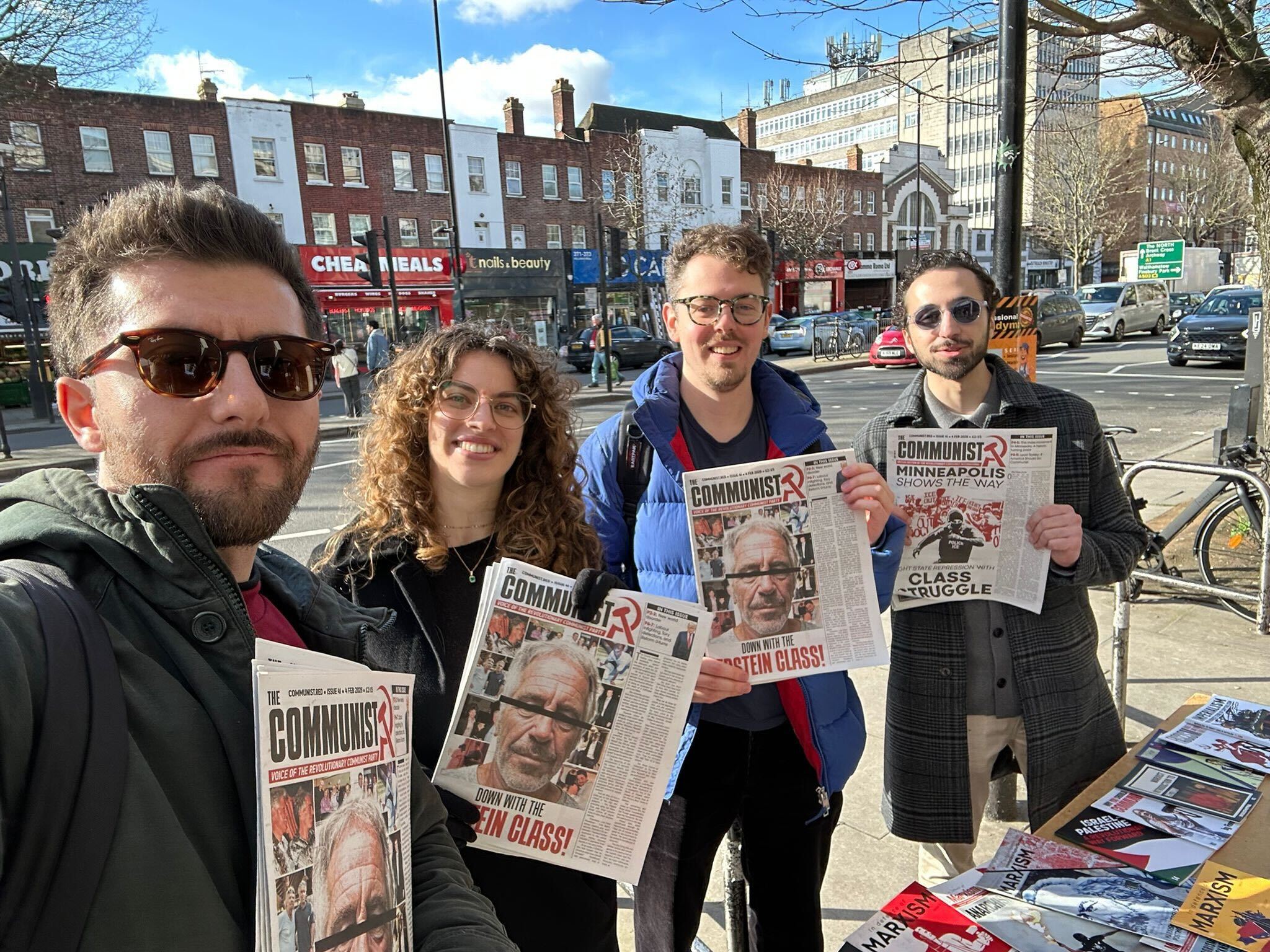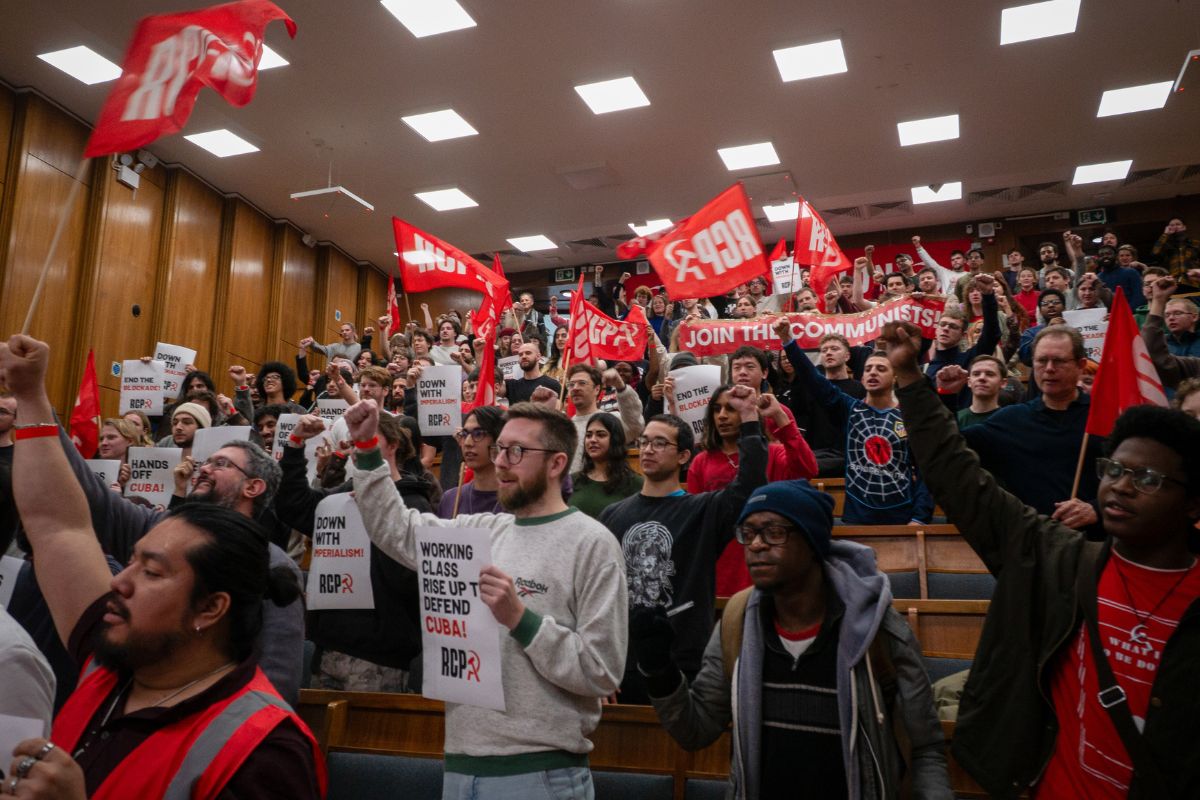Since launching the RCP in Scotland during the summer of 2024, Edinburgh has grown from two to three branches with ten new recruits.
The first ever RCP Scottish conference was the culmination of weeks of the ‘Paint Scotland Red’ campaign, which saw comrades from Edinburgh and Glasgow visit cities and towns to announce the launch of the RCP, and find dedicated communists all over Scotland.
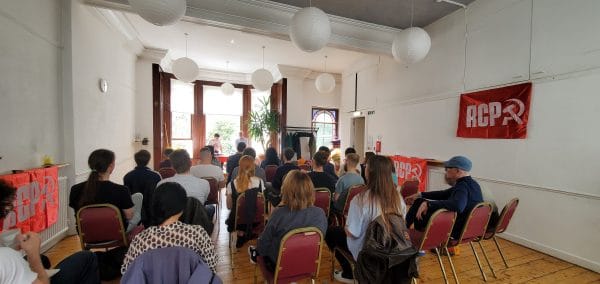
Rhys, who had only recently joined the RCP when the campaign started, explained:
“Overall, it was motivating to see the people in Dunfermline be enthusiastic about communism. Before I was in the party, I genuinely believed that there wasn’t much interest in the ideology but ‘Paint Scotland Red’ did flip that for me.”
The conference was an opportunity to clarify our political perspectives and the big task ahead of us: building the RCP in Scotland and training Marxists cadres.
With two new comrades agreeing to join by the end of the conference, it was the perfect launch pad for further growth.
Leadership
The expansion of a district is not just a question of numerical strength but of its leadership.
Having identified a new layer of growing leadership in Edinburgh, we formed new branches to give new comrades more roles and responsibilities as well as freedom to come up with new initiatives.
Expansion also meant a thorough theoretical and political education, combining discussion and activity.
What was most effective was 1-on-1 discussions with promising cadres to get them thinking tactically, and expressing opinions about branch strengths, weaknesses, progress, education, and general strategy.
Eva, a secretary-in-training, reflects on the importance of this support during an intense period of work such as freshers:
“The branch support was really strong and I feel that I developed my contact work a lot, alongside the rest of the branch. It has also been really beneficial for my development to gain experience in student work. I have learned a lot [through experience and political discussion] about the frustrations of working in student activist circles and how to hold a strong Marxist analysis.”
These discussions were part-and-parcel of a wider education plan, including regular informal political discussions and reading groups. This was tailored to comrades’ political level and their branch activity.
Connecting it up
If not connected to current events and political activity, the study of Marxist ideas can feel challenging – especially for new comrades. This was something we quickly recognised at the start of the year and worked towards making education an integral part of our activity.
View this post on Instagram
We always aim to discuss political lessons from the work we do, whether it be conversations on paper sales or speeches on demos.
We don’t just pack our bags and go home after a stall or an intervention, we make sure we go for a coffee to debrief and talk politics, even if we’ve just bumped into each other on the street.
Our weekly branch political discussions are also carefully thought-out to reflect the party’s work or important events we are intervening at a certain period.
For example, before the launch of the ‘Books not Bombs’ campaign, discussions revolved around imperialism and studying various conflicts including Palestine.
When we intended to go along at a local pro-Palestine activist group, discussions were geared towards clarifying the Marxist position on boycott tactics, apartheid South Africa, and the Bolshevik method of organisation.
This emphasis on connecting practice to theory attracted one of our newest recruits, Maggie, to join the party:
“[Other groups] think doing action without theory is their biggest strength, but it is actually their biggest weakness. We need to think before we act.”
This has made education an integral part of our political activities, and resulted in healthier and more engaging branch discussions, and inspiring reading groups.
Everyone leaves the branch feeling they have learnt something new and have their questions answered. This in turn means that new comrades feel more involved in organising party activity and feel ownership towards the growth of the party.
Consistency
Our growth did not come all at once, it was the result of consistent work. With the exception of the Central branch – which was based at the University of Edinburgh and grew quickly during the Freshers period – the two other branches had relatively new areas to break into.
The South West branch had a foot in the door at Napier University with two student comrades, steadily establishing its presence in the university and the area gaining one recruit.
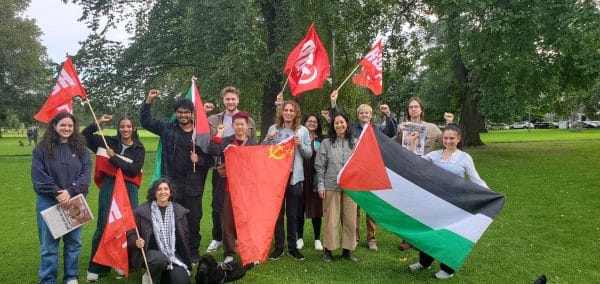
The Leith branch – with no workplace or university to base itself around and having to start completely from scratch with only three comrades – now boasts a membership of eight.
Our growth was the result of patient and consistent activity, whether a regular weekly paper sale in the area, holding public events, or having a go at connecting with workers in their workplaces.
In Napier, this resulted in students recognising our flyers and logos on campus. In Leith, the consistent weekend stalls allowed our comrades to make connections with local community groups.
Ayesha, a new member in the Leith branch who joined after being radicalised by the events in Palestine:
“[Being consistent] gives us solid reasons to keep the desire to fight for the cause. It makes our progress so much easier to see. I’ve never been a part of any reading groups because I hate reading. But since being a part of our branch one, I’ve read more in six months than I have in six years!
“It’s fantastic (and kinda scary) how much my consciousness can actually grow.”
A professional revolutionary organisation
The launch of the RCP in Scotland was a landmark event for us. It marked a conscious and steady shift from a small circle to a professionally-run region. In Edinburgh in particular, we have reached areas in the city that we previously had little presence.
We worked hard to improve the atmosphere in branches to be more inspiring, serious and professional. Education, going back to some of the basics for all comrades, was key to this.
From this, having comrades to attend paper sales, buy the In Defence of Marxism magazine and make larger financial sacrifices became easy – they understood why!
View this post on Instagram
There is still a way to go in Edinburgh and Scotland more broadly – we have seen this from the numerous write-ins and sympathisers who have got in contact from places where we do not yet have branches.
However, with strong established branches, we are confident that we will continue to paint Scotland red!

